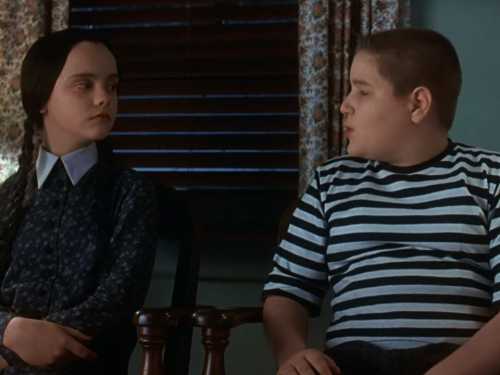
Americans have grown accustomed to constitutional litigation launched by well-prepared federally subsidized legal-services offices seeking to nullify state and municipal laws. These groups frequently overwhelm the ill-prepared assistant state attorneys general and assistant city solicitors who are compelled to defend state and municipal laws on a moment’s notice. The denizens of federally subsidized legal-services offices are generally fledgling lawyers, “full of zeal but without understanding” to use Justice Brandeis’s memorable phrase. Maturity, tolerance, and understanding of conservative views are at a premium in public law offices, whose staff invariably tend to the left of the legal spectrum.
After activist groups start the litigation process, a festival of illegitimacy ensues. These lawyers are not really responsible to individual clients, and are aided and abetted by the American practice of judicial review of statutes, which equips thousands of judges with a field marshal’s baton. This is quite unlike the European practice, which vests the power of constitutional review power only in the highest courts.
Advertisement
In Britain, by contrast, poorer potential litigants have recourse to Citizens Advice Bureaux (CABs), a distinctive British social institution established at the outset of World War II of which there were 1000 by the war’s end. Their initial function was to assist the public in dealing with wartime call-up, evacuation, and rationing regulations.
At the end of the war, the bureaux were redirected to assisting individuals with the regulations of the welfare state, including housing, installment purchases, and consumer-protection legislation. By 1969, the bureaux had between 5000 and 8000 volunteers, 75 percent of them women, and not more than 2000 part-time employees; the volunteers were housewives, retired teachers, nurses, social workers, and professional men. By 1993-94, there were 27,000 workers, 90 percent of them unpaid, processing 7.6 million inquiries, about 24 percent of which related to social security and consumer matters respectively, and 10 percent each to family, housing, and employment matters. Two-thirds of the bureaux functioned without paid help and only 9 had paid solicitors; there were volunteer solicitors in about 15 percent of the bureaux.
The bureaux emphasize case work, render advice divorced from material aid, impose no means tests, and are a surviving example of the philosophy once identified with the Charity Organization Society. By 1994, the CABs received central-government grants of £12.2 million and local-government grants of £37 million, or about $140 million at the rate of exchange then prevailing; adjusting for population, the equivalent for a U.S. program would be $840 million. The value of services rendered by volunteers was estimated to be four times the government appropriations.
In fiscal year 2022, the American legal-services program received federal appropriations of $600 million, and state, local, and private contributions of almost twice that amount, for a total approximating $2 billion.
The CAB issues reference and training materials—800 items in a four-drawer filing cabinet, supplemented monthly. It has been said that the CABs “fight like tigers to prevent children from going into [foster] care.” Unlike bureaucratic agencies, the advice bureaux are said to offer their clients “the luxury of time to talk,” and volunteers are expected to present all options and abstain from revealing their political persuasions.
Advertisement
There are, to be sure, legal-services programs in Britain. But they are devoted to contesting individual cases, not in sweeping efforts to alter social policy through class-action suits. The British legal-aid program is expensive because it replaces the American practice of contingent fees in ordinary tort cases.
Subscribe Today Get weekly emails in your inbox Email Address:
Prof. Alfred J. Kahn made proposals for American neighborhood information centers in a 1966 study for the Columbia School of Social Work, but they were stillborn. This is unfortunate, since CABs are truly nonpartisan, and their advisors are mature persons who have seen something of human nature as it is, not as the young imagine it to be. The American “War on Poverty” was explicitly in favor of class advocacy over individual casework and its neighborhood offices were and are manned by professionals, not volunteers, who devoted themselves to overthrowing, rather than producing conformity with, existing social institutions. The prevailing ideology in American programs has stressed legal services rather than social work, and has fostered a culture of complaint rather than constructive endeavor. It has been continually embroiled in partisan warfare at the national level. By contrast, when the CAB program was questioned by a doctrinaire Thatcher government cabinet minister in1983, he was relegated to the back-benches, with the program receiving nearly unanimous support from Conservative members of the House of Commons.
About 3.4 percent of volunteers are ethnic minorities who make up 5.1 percent of the British population; 2.7 percent are disabled persons, and 54 percent are over the age of 55. Of those aided by CABs, 60 percent are not working, 11 percent are single parents, 27 percent are black and 90 percent have below-average income. About 40 percent of the population consults the CAB at least once in their lifetime, and one-third of the online population consults it at least once each year. The CAB has been imitated in Australia, New Zealand, Ghana, and Israel.
The Bureaux expose a substantial number of middle-class laymen to the problems of the poor, and have become a significant force for law reform. America could learn from their example.
Advertisement
Sourse: theamericanconservative.com






